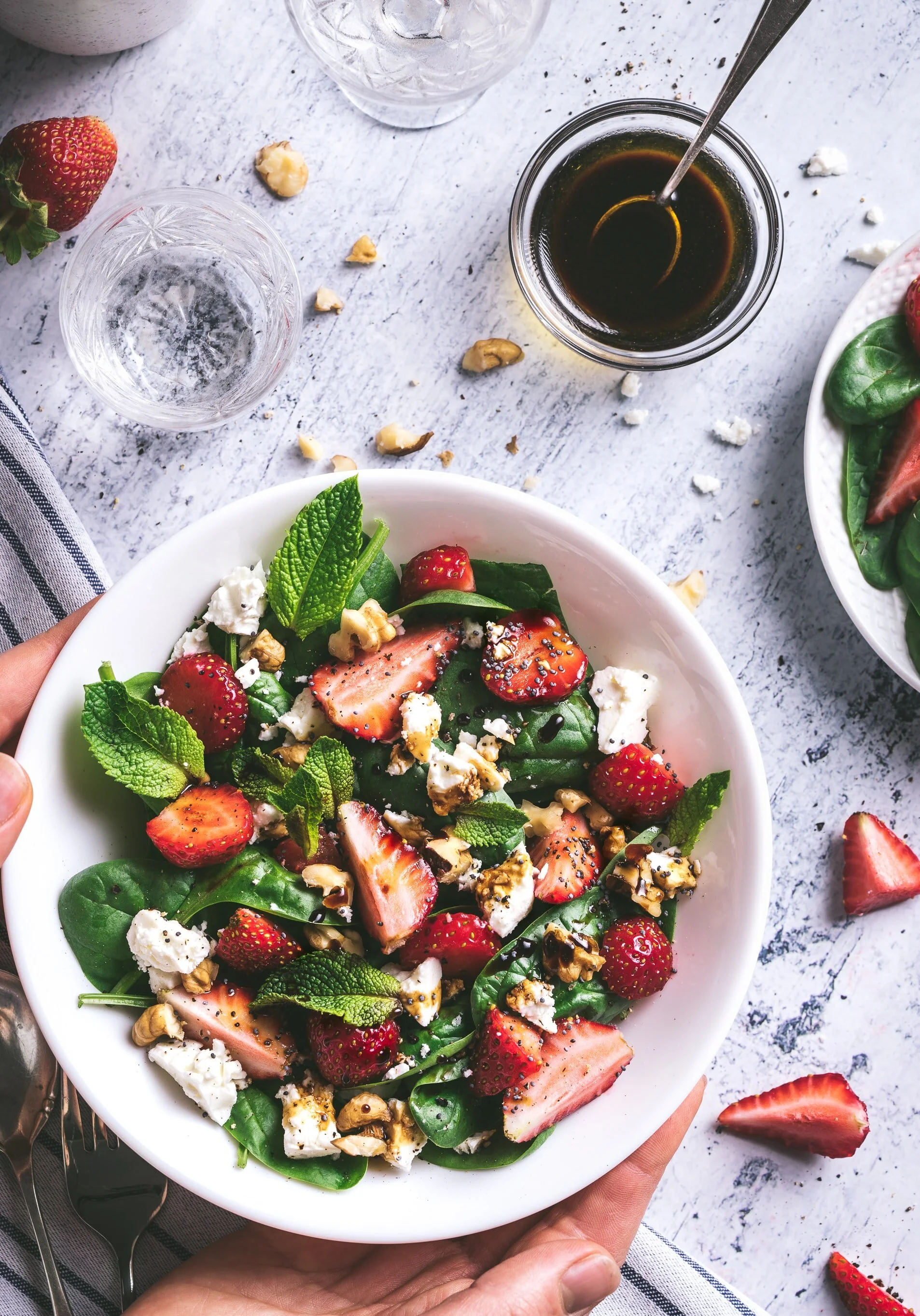How to treat indigestion and other stomach pains.
Indigestion and Stomach Pains
Almost everyone will have indigestion, acid reflux, heartburn, or cramps and pains in their intestines at some stage in life! This blog looks at the common causes of indigestion and acid reflux, how to help avoid these problems and how to manage them.
Here’s a summary of this indigestion blog if you’re short on time.
Most indigestion is caused by what we eat or drink, medication, or stress, infection or inflammation.
If you have pain when swallowing food, see your doctor if it persists beyond a few days or it comes back again.
If you have new heartburn and you are at risk of heart disease then see your doctor as this could be a sign of heart disease.
If your indigestion persists despite changes in food and over the counter treatments then see your doctor as you may need some blood tests and a camera test to look into your food pipe and stomach.
Chewing each mouthful of food 20 times improves natural digestion
Exercise helps keep our bowels moving and can reduce excess acid
Avoid tablets like ibuprofen (NSIADS’s) and aspirin as they can cause inflammation of the stomach and even an ulcer.
Coffee, tea and other warm drinks and smoking cause the valve at the bottom of your food pipe to relax, and so allows stomach acid to enter your food pipe where it should not be! This causes acid reflux and heart burn and can lead to long term damage of one’s food pipe.
Reduce stress, reduce acid. Next blog will be on stress reduction naturally.
The bacteria H.Pylori can cause indigestion, acid reflux and stomach ulcers. You can get tested for this and if positive receive treatment.
So, what is indigestion?
Indigestion means difficulty with digestion of food.
Digestion is what happens to our food once we put it in our mouths. It is the softening of hard foods into liquid so that the carbohydrate ,proteins and fats can be broken down for the stomach and intestine to absorb the nutrients.
Digestion starts with our eyes and nose! Even before the food touches our mouth the brain is getting the mouth ready by producing lots of digestive juices to help break the food down as we chew.
These digestive enzymes are produced to help soften food before we swallow it so it doesn’t damage our food pipe.
Then the next step is the production of digestion enzymes and acid in our stomach to further soften the food and break it down so we can start absorbing some nutrients.
Once food leaves our stomach it is further digested by bile acid coming from the gallbladder into the small intestine and by other digestive enzymes from our pancreas, the gland best known for producing insulin.
Our food still remains liquid in the small intestine where a lot of nutrients including fats, carbohydrates, minerals and vitamins are absorbed.
On leaving the small intestine the liquid ‘food’ is now used to hydrate our body and the large intestine sucks all the water it needs from this liquid to leave behind all the matter and fibre- that is not needed. This is what makes your ‘poo’ and why fibre in our diet is so important.
So, as you can see there are many steps at which digestion can go wrong.
It’s important to remember that some people have indigestion type symptoms that actually come from their heart which shares the same nerve supply for pain.
Angina or chest pain like that of a heart attack can seem like indigestion. So, if you are a smoker, overweight, have high blood, are diabetic or have a close relative with heart disease under the age of 55, then you need a medical check-up to ensure your indigestion is not coming from your heart.
So, how can we prevent or treat indigestion?
Let’s start with the mouth.
1. Are you chewing your food adequately? This means 20 chews per mouthful. Get counting!
2. Do you smoke? Smoking damages our taste buds on the tongue and so we will not produce enough digestive enzymes when food enters our mouth or when even the smell of food should have our digestive enzymes flowing. Smoking directly irritates the stomach and can cause ulceration of the stomach lining. The answer: stop smoking!
3. Are you taking painkillers like ibuprofen? if so, they can cause irritation of the stomach and eventually ulceration with long term use. Try to use them occasionally and take with food.
4. Are you drinking fizzy drinks? These can cause more acid in your stomach and increased gas which makes for an uncomfortable stomach.
5. Stress can give you a dry mouth and reduce the digestive enzymes in the mouth. If you have chronic stress, think about ways to change how you react to it and work out how to reduce those stressors if possible. We will come back to some stress busters in our next blog.
Problems with the oesophagus or food pipe.
The oesophagus is the tube that carries food from the back of our mouths to the top of our stomach. At the bottom of this tube is a valve which opens to let food into the stomach and closes to stop food and acid going back up the food-pipe.
Things that can cause indigestion in the oesophagus:
A faulty valve or valve that is not closing tightly enough. Anything that causes relaxation of the valve will allow acid to return back up the tube of the oesophagus.
Smoking, caffeine, warm/hot drinks and fizzy drinks are common causes for acid coming back up the tube.
Some people can develop a web in the upper oesophagus where food can get stuck and this can cause swallowing problems. Pouches develop for different reasons. Chewing your food and ensuring it is not too hot before swallowing and reducing acid can help avoid this.
Irritation of the oesophagus: this often causes pain on swallowing or discomfort behind the chest bone. Any pain from swallowing that persists for more than a few days means you should see your doctor straight away.
Often pain on swallowing can occur with acid reflux but usually goes away. If it persists you must seek medical help straight away.
Causes of pain on swallowing are Acid reflux, an ulcer or growth in the food pipe which can be cancerous.
Indigestion problems coming from the stomach.
Some people have a condition where they produce lots of acid no matter their diet or chewing habits
Smoking, certain foods and medication can cause stomach ulcers which can bleed and cause pain like indigestion
A bacteria called Helicobactor Pylori causes increased inflammation ( irritation) of the stomach which causes indigestion and ulcers. We can now test for H.Pylori using a simple breath test or stool test and then treat the bacteria with antibiotics.
Hiatus hernia: this is to do with the shape and position of your stomach and usually not serious but can cause discomfort and indigestion for many people. It’s more common if you carry more weight around your stomach, so losing weight can help.
Coeliac disease: this is an autoimmune disease where your stomach reacts to gluten found in lots of foods. It causes the crinkly surface of your small intestine to become flat and so you don’t digest nutrients as well. Most people don't know they have coeliac disease.
Other inflammatory diseases, like crohns and sarcoidosis can produce stomach pains and indigestion. Always see your doctor to get checked out.
Stomach ulcer: people with stomach ulcers often have pain that comes on after eating, or pain 2-5 hours after eating or night time stomach pain. Stomach pain is felt in the centre of the abdomen just below your ribs. Some people feel full very quickly while eating. Some people have no symptoms.
The gallbladder and pancreas
Gallstones are a common cause of indigestion often causing a band like pain around the lower ribs
If you drink a lot of alcohol or if you had an infection or gallstones that damaged the pancreas gland then you may find it hard to digest food in the small intestine and you may have central stomach type pain much like that of a stomach ulcer.
Gallstones or a damaged pancreas can cause symptoms of indigestion, bloating and even diarrhoea.
If you feel sick/nauseous, have lost your appetite, or are losing weight, or have difficulty swallowing see your doctor as soon as possible.
Natural remedies for indigestion.
Like everything there’s no magic cure, but,
avoiding the things that cause acid or indigestion is a good starting point.
Second is eating foods that agree with you. If apples and red onions give you heartburn, do not eat them! If beer and wine give you acid reflux avoid them or at least reduce your intake or take your favourite alcoholic beverage with some food as that may help.
The mint family and fennel plant can aid digestion, so try eating some mint which you can grow just about anywhere and try cooking with fennel seeds.
Prebiotics and probiotics can help restore your natural bacteria in your intestine which can also help.
This means eating lots of fresh vegetables with fibre, eating fermented foods such as kefir, natural yogurt ( though the probiotics may not survive your stomach acid), Saurkraut and Kimchi.
You do not need to eat them every day but even once a week will help.
Some people find a probiotic medication helps until their diet improves, though evidence for this from large is currently lacking.
All these changes take time, so be patient. Of Course, there are many other ways to tweak your diet, but often just removing the culprits will help immensely.
If diet is not helping see your doctor who will examine you and ask some questions to decide if further tests need to be carried out.
Your doctor may do the H.pylori test and check some bloods and consider starting a tablet to reduce acid production in your stomach.
These tablets are called proton pump inhibitors or PPI’s. The most commonly used PPI in the UK is omeprazole.
Long term use of PPI’s is needed in some conditions where excessive acid is damaging the food pipe but in most cases it is used for 2- 6 months.
Long term use of PPI’s can reduce the amount of vitamins you absorb from your food- such as B12 and magnesium- and can interfere with other medications you are taking.
And PPI’s may reduce bone turnover in your bone marrow, theoretically increasing your risk of a stress fracture,
If you need to take a PPI, remember it should be taken in the morning 1-2 hours before eating for most effect.
If you are stopping a PPI, reduce the dose by 50% each week then stop when at the smallest dose.



